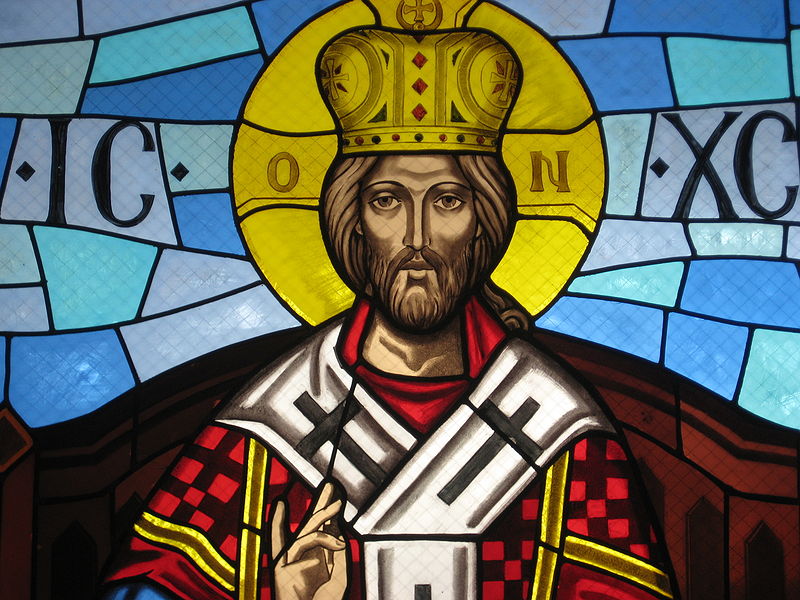From the very start of Advent this year, I was struck by how frequent references to Jesus’ kingship are. In Advent, we wait for a king to arrive. Then at Christmas, we hear of the “king of kings,” and many of our happiest carols (Hark the Herald Angels Sing, Joy to the World, The First Noel) are resounding songs about Christ’s rule. Now comes Epiphany, and the claims only get more striking. The kingship is not just of David’s people, but of every nation.
The readings make clear the connection between proclaiming Christ as king and recognizing Christ’s rule. The psalmist delights in the exercise of rule (judgment and justice). While when we hear words like “glory” and “radiance,” we might think of the trappings of royalty – of the gold and incense! – the real claim involved here is about effective governing. Christ is really appearing in a particular way: as the one who is in charge. In a sense, this could not be more different from the contemporary world’s fascination with “royals” who in fact exercise virtually no actual rule in their domains.
The secret here is first and foremost that someone is always ruling, someone is always in charge. In the United States, we’ve largely adopted a “power-checking” model of rule – the branches of the national government, a bicameral legislature, independent judges, a federal system of state governments. Like any human system, this has merits and problems; certainly it prevents things from getting done, but that is as much feature as bug. We can see this is the constant temptations of many in our system to exercise unilateral power, to “do” this or that – this is the psalmist’s “judgment and justice,” but of course it is not necessarily God’s! Our system is apt to make us think that, in reality, no one’s in charge, which leaves us “free.” That can lead to chaos, and chaos easily enough adds up to the rule of the strong over the weak. Yet it can also lead to self-government – people taking charge of their own lives in good ways – and, more importantly, to God’s rule.
But can it? Doesn’t someone need to represent God? Oddly enough, the strong advocates of “social justice” and the so-called “integralists” who want governments to encourage and enforce true religion equally seem to think the government must take up God’s task. The readings today might give us pause, in light of the unusual kingship of Christ.
We should notice two things in these readings. First, for all this proclamation of Christ’s kingship, there is remarkably no image of conquest. The first reading from Isaiah is remarkable for the way it describes the dynamics of Christ’s kingship: light cutting through the thick clouds, nations streaming toward Jerusalem, the sea giving up its treasures, the world gathering. There are no images of conquest here; the rule could be described as magnetic, drawing peoples toward it, just as plants incline toward light sources. Christ coming as a migrant child in a stable; John the Baptist as the ascetic crying out in the wilderness; Mary proclaiming God’s great work in her body. The absence of any kind of conquest imagery here is as striking as the absence of any violent conquest imagery in the creation narratives. God’s rule is not that way, it does not ultimately come about that way. The appearance of the true king does not lead to the preparations for a military (or political!) campaign leading to a successful conquering of the citadels of power. We know what happens to Jesus in Jerusalem, to Peter in Rome. This is all very significant.
But of course, so is King Herod’s reaction – that’s the second thing to notice. The good news in the gospel is surely that the streaming of the nations to Israel’s new king really does happen. Wise people come to seek him out. The powerful can in fact do him homage. The bad news is that some of the powerful realize that, even though he has no weapons, he is indeed a great threat to them. And indeed they are right. If God’s reign comes without military conquest or palace intrigue imagery, it still threatens the powers that be.
The mistake many make is an “all-or-nothing” mistake. Either Jesus is against all the powerful, because they are threatened by his message of peace and love – OR Jesus is no threat at all because he’s a “different king of king.” What we see in the Epiphany is that it is not an either/or – that some of the powerful can see this true king, can seek God and wisdom, can pay him homage freely (not out of coercion or alliance!). But some others cannot do so. Why? It takes all of the Gospel to understand this, but it is already hinted in Herod’s story that the key is rivalry. Herod must want total power, because any king is a rival king. This is the taunt of Pilate near the end of the Passion, as well: this is a king, so he must be a rival. That depends on how you see your own kingship. Do you reign like a god over your life, over your domain? Or are you ready to have your own rule illuminated from above, guided by a greater wisdom of judgment and justice? Is God your rival? That’s the dividing question that appears when the true king comes.




